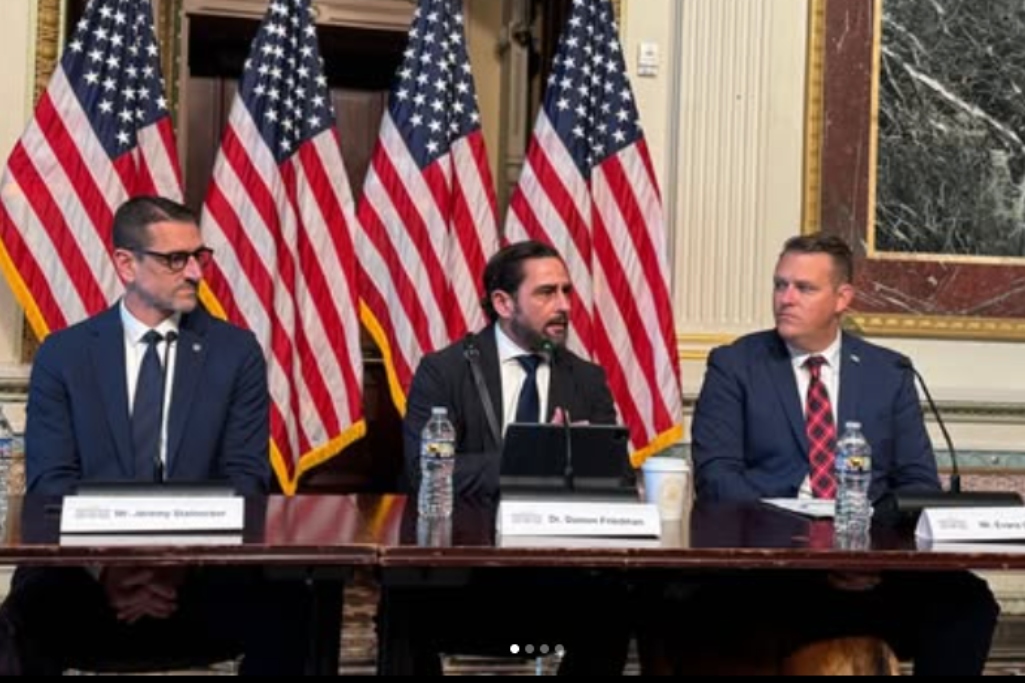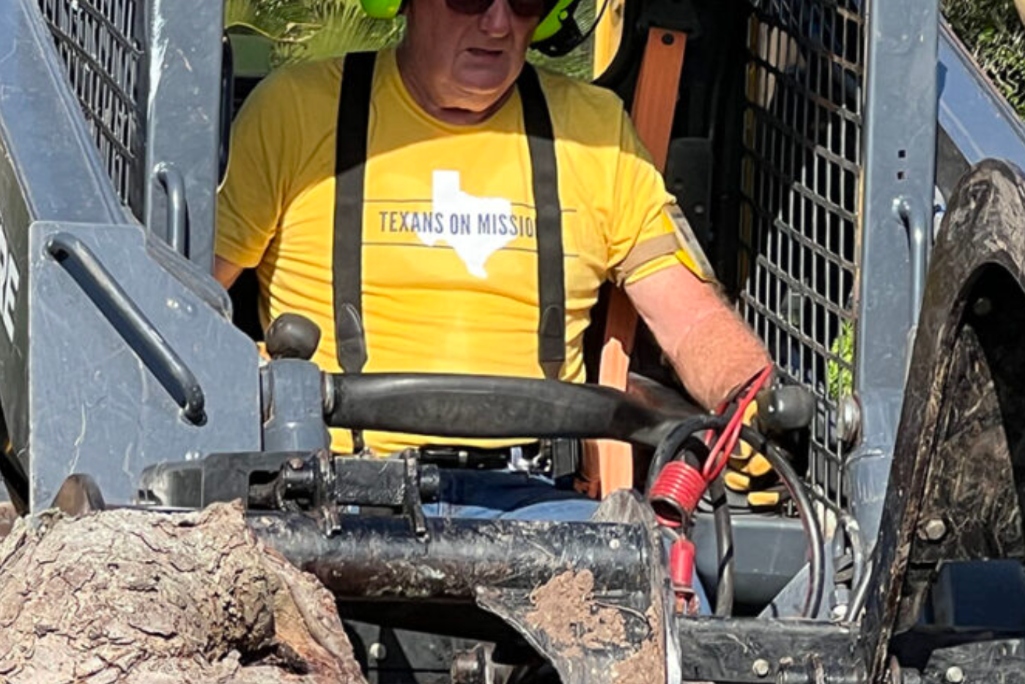
Damon Friedman, center, speaks on the importance of faith in addressing and preventing suicide among veterans. At left is Jeremy Stalnecker, CEO of Mighty Oaks, while Evan Owens, executive director for REBOOT Recovery, is on the right.
WASHINGTON, D.C. (BP) — Faith leaders joined others Sept. 17 at the White House to speak on faith’s role in preventing suicide among veterans and addressing recovery for those struggling with suicidal ideations.
“Anchored in Hope: Standing Strong for Our Heroes” featured a panel that included Samaritan’s Purse President Franklin Graham; Alveda King, chair of the America First Policy Institute’s Center for the American Dream; and Damon Friedman, decorated combat veteran and founder of SOF Missions. September is Suicide Prevention and Recovery Month.
Friedman served in the special forces while going through four combat tours in Iraq and Afghanistan. He earned three Bronze Stars (one for Valor), the Air Force Combat Action Medal and the Spirit of Hope award presented by the Secretary of Defense. But he also endured a brain injury during his time there.
“I was in a lot of stress and pain,” he told Baptist Press (BP) of how it affected his mental health and took him to the darkest of places.
At the event, Friedman leaned into the importance of holistic strategies to combat PTSD and reduce suicide among veterans nationwide.
“Right here, we have the Veteran Service Alliance (VSA), which is a perfect example of numerous nonprofits working as a collective to solve problems at top speed,” he said. “We’ve been working together as a collective … (and) been doing this, not for 10, 20 or 30, but for 40 years.
“We have a partnership that is unbelievable, and I’m going to tell you right now that when we work as a collective, we are truly an unstoppable force for good.”
Friedman serves as VSA chairman and told BP that the organization is “going to be revamping the way we provide veteran care in the U.S.”
Before the event, he said he never thought he would be walking “into the President’s home to discuss the issues that matter most to our nation’s heroes.
“Now, by God’s grace, I have the honor of standing at the White House to advocate for America’s 20 million veterans,” said Friedman. “They deserve the very best care, and I intend to make sure their voices are heard.”
Others on the panel were Paula White, senior advisor in the White House Faith Office; Evan Owens, executive director for REBOOT Recovery; and Jeremy Stalnecker, CEO of Mighty Oaks. Owens and REBOOT Recovery, which was birthed out of First Baptist Church in Clarksville, Tenn., were featured in a 2021 BP article about the need for soul care for members of the military.
Friedman also addressed the recent deadly shootings in North Carolina and Michigan by Marine veterans.
“These are acts of violence that shake the conscience of our nation and demand our collective attention, especially from the veteran community, which is already wounded and watching,” Friedman said in offering his prayers for those impacted.
“As someone who has served in combat and now walks daily with veterans navigating the invisible wounds of war, I feel the weight of these events in a unique way,” he added. “These tragedies point to deeper crises of trauma, moral injury and alienation among those who have served.
“Let me be clear. The vast majority of our veterans, including many who have faced the horrors of combat, do not commit violence against others. It is a gross injustice to stigmatize them. But when a veteran does perpetrate harm, it must prompt serious reflection, both in the veteran care space and in our broader culture, about how we train, support and shepherd those returning home.”
Psychological treatments that address post-traumatic stress disorder are only one piece of the puzzle, Friedman pointed out.
“The signature injury of the post-9/11 war isn’t PTSD, but mild traumatic brain injury,” he said. “But they’re having cognitive issues from some type of concussive blast. They’re having spiritual issues from moral injury. The symptoms for all three can look the same, so that’s why when we’re talking about solving problems, we want to understand where the trauma is processed.”
Moral injury contains the spiritual component of healing.
“When we provide a holistic approach, which is psychological treatments and modalities, physical treatments and modalities, cognitive treatments and modalities, social treatments and modalities, spiritual treatment modalities … the reality is the spiritual component has been the most impactful part of our practice,” he said.
SOF Missions enlists up to 30 practitioners like psychologists, social workers, chiropractors, massage therapists and nutritionists for veterans and active-duty personnel. After a week of assessment in a resort setting, they receive a follow-up care plan for the following year.
The White House gathering focused on the crucial role faith plays.
“Most veterans naturally ask spiritual questions during recovery,” he said. “If we ignore the spiritual dimension, we miss what the majority already see as essential to healing. Faith communities bring trust, purpose and long-term support, helping veterans find meaning and the strength to move forward.”
Friedman shared further thoughts on Instagram.
“Our veterans deserve more than programs,” he wrote. “They deserve transformation, hope, and the opportunity to encounter the One who can heal their deepest wounds.
“We’re just getting started – and I believe the impact will be historic.”
(EDITOR’S NOTE — Scott Barkley is chief national correspondent for Baptist Press.)


